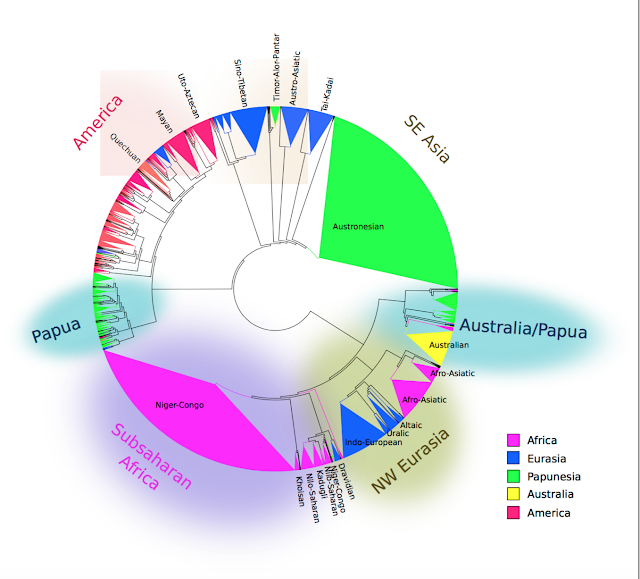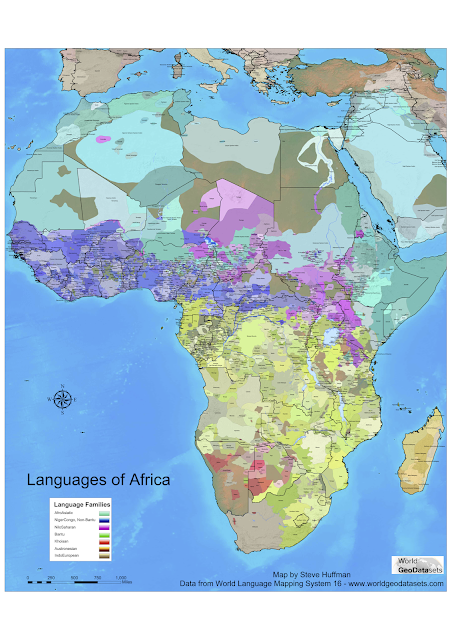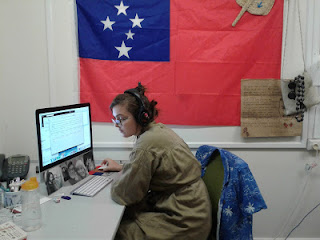Grand Challenges of Linguistics pt 4: response from readers
Continuing on the series "Grand Challenges of Linguistics", I thought I'd share responses that came in on twitter (you can tweet your own response here). These are questions that occupy researchers of the field today. What do you find to be the most important and interesting questions and challenges of your research field?
Nick Enfield said :
"Focus on answering research questions not on defending methods/approaches"
"Take seriously the connections between grammar and social interaction"
"Focus on answering research questions not on defending methods/approaches"
"Take seriously the connections between grammar and social interaction"
Piers Kelly said:
"Work out how to locate living breathing humans in the data. If linguistics is not a humanist science, we've lost the mission!"
"Address structural biases against cross-disciplinary research. Don't just affirm that cross-disciplinarity is a 'good thing'."
Simon Greenhill said:
"Scaling up the data and methods to detect & quantify the global, regional, & familial processes shaping language diversity."
I'd also like to share some quotes from two round table dsicussions on this very topic that we talked about before. The two round table discussions had different perspectives, one more "generative" and one more "functional.
Generative round table discussion
Rose-Marie Déchaine said:
"there remains an Indo-European bias in the field, which privileges certain data sets as being inherently more theoretically interesting than others."
Elena Anagnostopoulou said:
"Syntacticians are often highly selective in the way they read and cite, and they adopt main stream proposals without questioning their basic assumptions. At the same time, interesting theoretical work is ignored if it is not fashionable or produced at the right places. This imbalance does not encourage free thinking. Success measures are often one-sided and the pressure for increased productivity does not always outweigh the cost of decrease in depth "
"Syntacticians are often highly selective in the way they read and cite, and they adopt main stream proposals without questioning their basic assumptions. At the same time, interesting theoretical work is ignored if it is not fashionable or produced at the right places. This imbalance does not encourage free thinking. Success measures are often one-sided and the pressure for increased productivity does not always outweigh the cost of decrease in depth "
At the round-table discussion with a more functional slant
Katarzyna Bromberek-Dyzman said:
"Linguists need to employ their language-related expertise to answer bigger scale questions about the nature of language systems in connection with other systems of meaning involved in communicative sense making. Neuroimaging research shows that language processing is not computed in a mental and neurophysiological vacuum."
Eitan Grossman said:
"The field of grammaticalization studies has turned up a massive amount of data on the regularities of change that result in grammatical structures. It has also turned up counterexamples and rarer types of change that can result in grammatical structures. Of course, cross-linguistic study and research on historical change in languages with real documented historical corpora can help us to evaluate the hypotheses of grammaticalization research, but I would like to point to another avenue of research that bridges disciplinary boundaries, forging a link between the work of ‘unhyphenated’ linguists and experimentalists."




Comments
Post a Comment